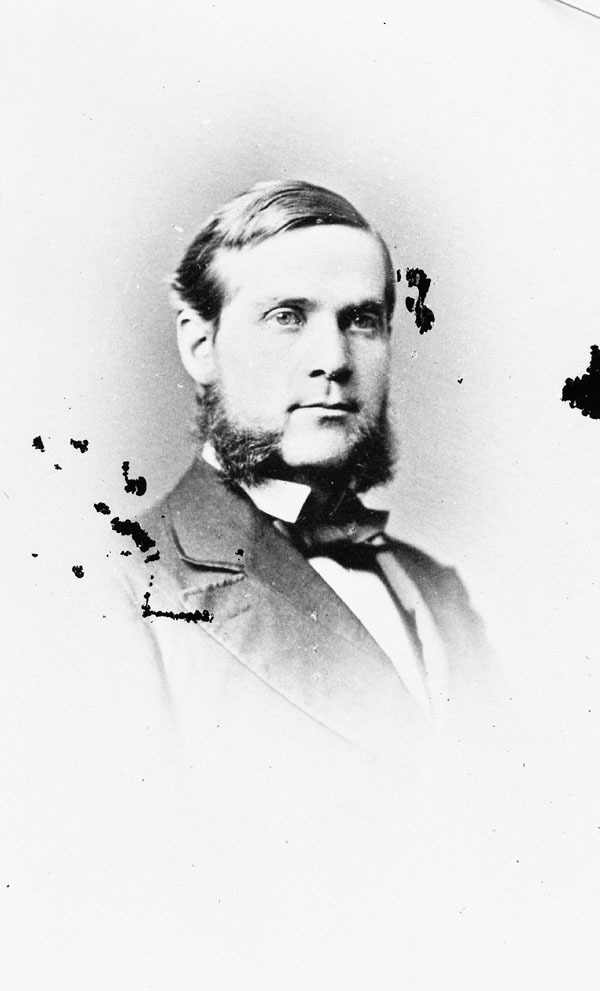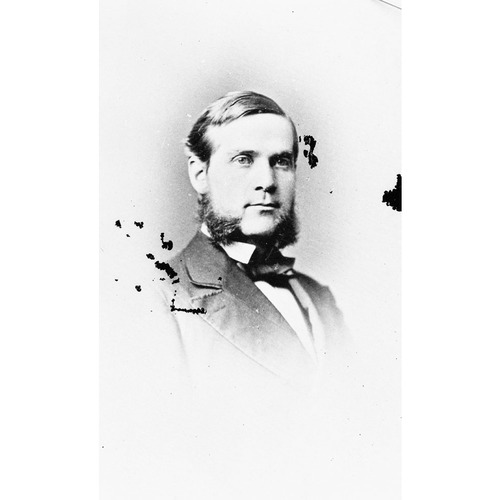SPARLING, JOSEPH WALTER, Methodist minister and educator; b. 14 Feb. 1843 in Blanshard Township, Upper Canada, son of John Sparling and Mary Williams; m. 1871 Susannah (Susan) Weir Kerr of Toronto, and they had four children, three of whom survived infancy; d. 16 June 1912 in Winnipeg.
Joseph Walter Sparling was descended from Irish Methodists whose forebears, as refugees from the Palatinate (Germany), had settled in County Limerick (Republic of Ireland) and had later come under the influence of John Wesley. Marked by a sturdy religious faith and a strong sense of kinship and community which survived many generations, these people played a pivotal role in the emergence of both American and Canadian Methodism.
After attending high school in St Marys, Upper Canada, Sparling studied at Victoria College, Cobourg. The year 1871 was of importance in his life: he married, graduated ba from Victoria, received a bd from Garrett Biblical Institute (affiliated with Northwestern University) in Evanston, Ill., and was ordained at Belleville, Ont., by the Reverend William Morley Punshon*, president of the conference of the Wesleyan Methodist Church in Canada. In 1874 he received an ma from Victoria and in 1889 he was awarded a dd by Northwestern University. He served several Methodist circuits, including Montreal, Aylmer, Que., Ottawa, Quebec City, and Kingston. From the outset, his leadership was recognized not only by the congregations to which he ministered, but also by the wider church. From 1874 to 1883 he was the financial secretary of the General Conference of the Methodist Church and in 1888–89 he was president of the Montreal Conference of the church.
In August 1888 Sparling was selected to become the first principal of Wesley College, Winnipeg. A charter had been obtained in 1877 with provision for the college’s affiliation to the University of Manitoba, but it lay dormant until the mid 1880s, when the Manitoba and North-West Conference of the church began to raise funds and organize the educational institution. The theological and liberal arts college opened in the fall of 1888, holding classes in Grace Church, but Sparling’s commitments were such that he was unable to move permanently to his new position until the following year. Wesley College was to be his life’s-work. In every way he proved to be a superb builder. He taught all week, mainly pastoral theology and homiletics, and on weekends travelled throughout the country, preaching and laying before congregations the claims of the college. In this way he nurtured a deep sense of loyalty toward the institution. His capacity to raise money and administer it wisely became almost legendary. In January 1896 the college moved into its new building on a commanding site on Portage Avenue. When he died, Sparling left the college free of debt, with an endowment approaching $250,000, and a record of never having had a deficit in current operations. Of equal importance was the skill he demonstrated in choosing faculty, evident in his selection of such teachers as Robert Rutherford Cochrane, George John Blewett, and Salem Goldworth Bland*. He retained their loyalty and enthusiastic cooperation. He was, remarked William Frederick Osborne, professor of English, “a great encourager of talent and ability.”
Although Wesley College was his chief concern, Sparling made a significant contribution to the wider work of the church. He was a prominent member of the board of education and the board of missions of the Methodist Church; in 1898 he was president of the Manitoba and North-West Conference. He played an important role in establishing Alberta College in Edmonton, and several churches, a city mission, and a fresh-air camp at Gimli. He was a strong supporter of the movement toward church union. Active to the end, he suffered a stroke while the Manitoba Conference was in session, died three days later, and was buried in Elmwood Cemetery, Winnipeg.
Sparling’s contemporaries regarded him as a born leader, possessing a profound knowledge of human nature as well as practicality and tact, supported by a genial sense of humour and a rich spiritual life. People trusted him. His vision and personal qualities were well fitted to the needs of the west at that time. In a letter to the board of Wesley College after his death, the council of the University of Manitoba spoke of “the confidence he inspired in public men” and of how he brought “an intimate knowledge of the needs of the new country and an ardent desire for the intellectual and spiritual uplift of the whole people.”
A sermon on the subject “Acquaintance with God,” which appeared under the title Baccalaureate sermon . . . ([Winnipeg, 1902?]; copy at UCC-C), seems to be Joseph Walter Sparling’s only surviving publication.
Univ. of Winnipeg Arch., Wesley College, board of directors, minutes, 1886–1914. Christian Guardian (Toronto), 19 June, 3 July 1912. Manitoba Free Press, 17 June 1912. Vox Wesleyana (Winnipeg), January 1897, November 1912. A. G. Bedford, The University of Winnipeg: a history of the founding colleges (Toronto and Buffalo, N.Y., 1976). G. H. Cornish, Cyclopædia of Methodism in Canada . . . (2v., Toronto and Halifax, 1881–1903). D. C. Masters, Protestant church colleges in Canada (Toronto, 1966). Methodist Church (Canada, Newfoundland, Bermuda), Manitoba Conference, Minutes (Toronto), 1912.
Cite This Article
Gordon Harland, “SPARLING, JOSEPH WALTER,” in Dictionary of Canadian Biography, vol. 14, University of Toronto/Université Laval, 2003–, accessed December 20, 2025, https://www.biographi.ca/en/bio/sparling_joseph_walter_14E.html.
The citation above shows the format for footnotes and endnotes according to the Chicago manual of style (16th edition). Information to be used in other citation formats:
| Permalink: | https://www.biographi.ca/en/bio/sparling_joseph_walter_14E.html |
| Author of Article: | Gordon Harland |
| Title of Article: | SPARLING, JOSEPH WALTER |
| Publication Name: | Dictionary of Canadian Biography, vol. 14 |
| Publisher: | University of Toronto/Université Laval |
| Year of publication: | 1998 |
| Year of revision: | 1998 |
| Access Date: | December 20, 2025 |




